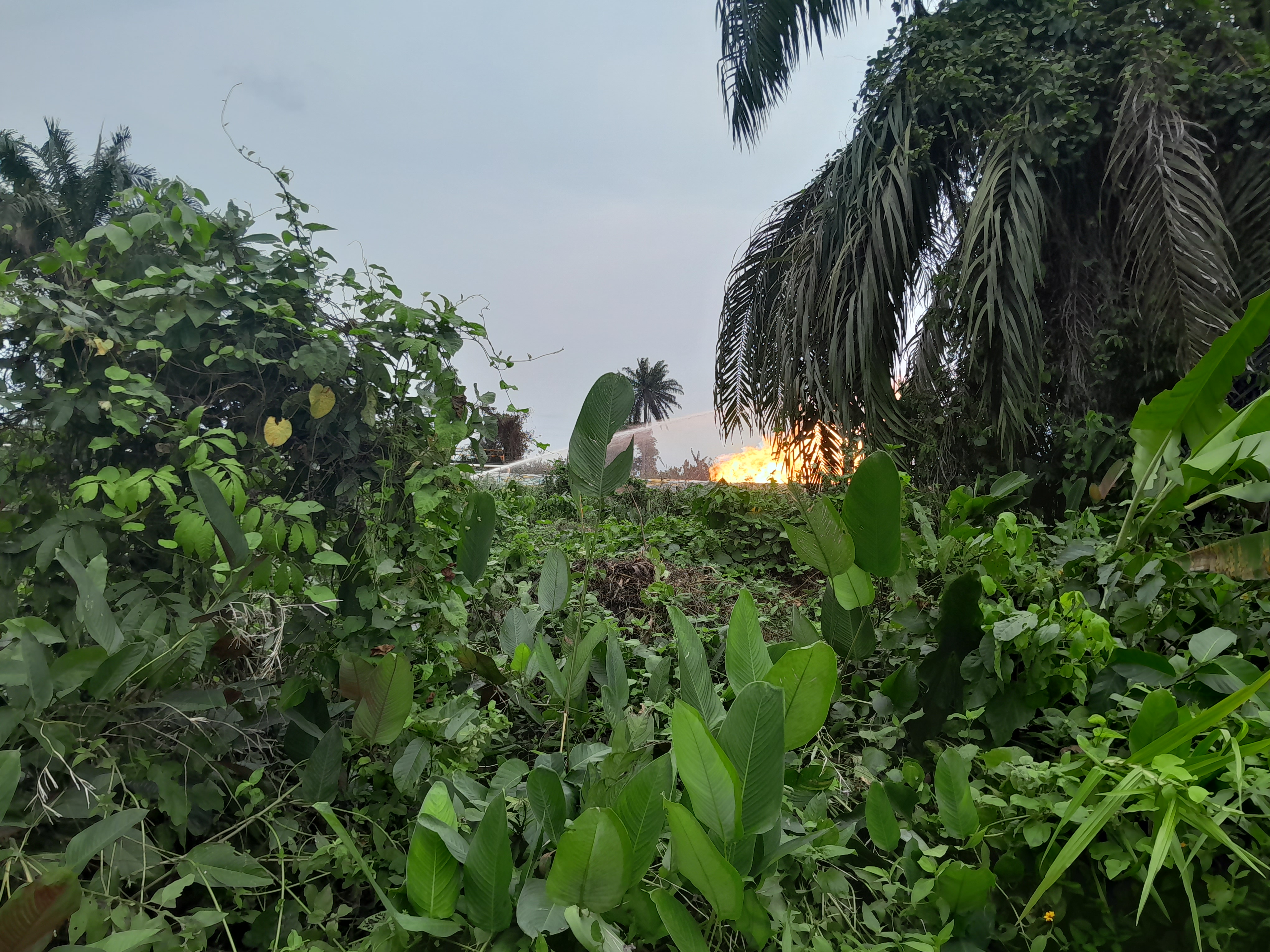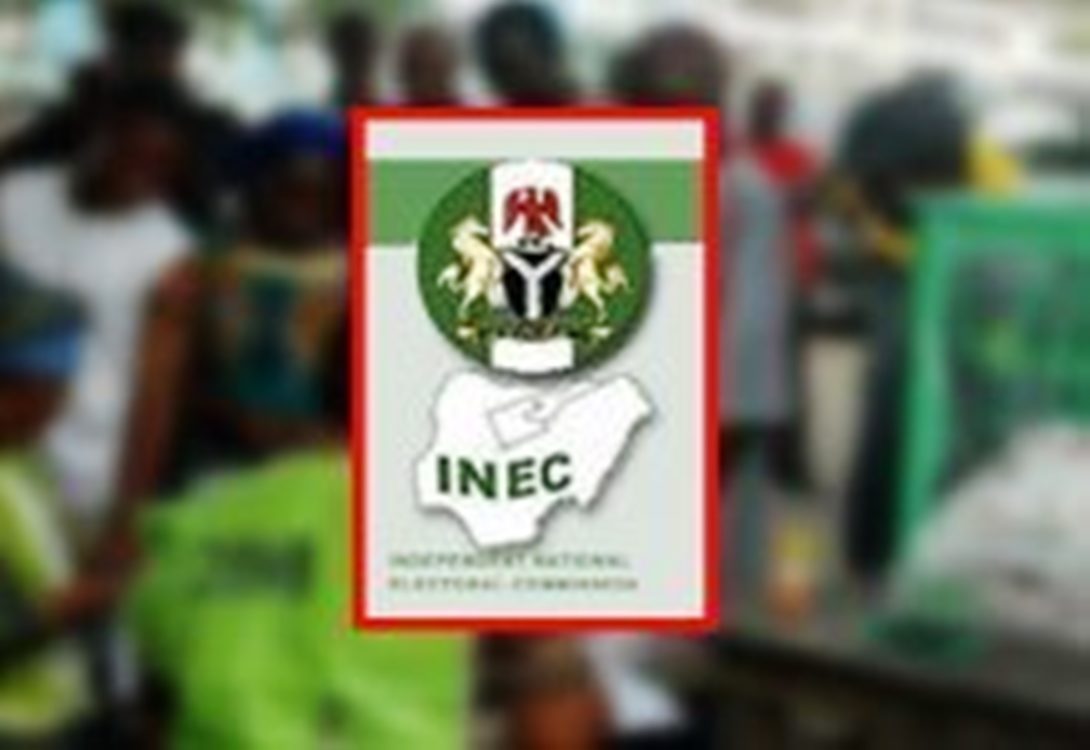OPINION
SUNNY OFEHE: WHAT NEXT AFTER FAILED TERRORISM CHARGE?

The Netherland-based Nigerian environmental activist, Sunny Ofehe, is surely a misunderstood person despite his commitment to the cause of his people.
And the Dutch secret service seems to be chasing shadows over the frivolous charges brought against him.
For 18 months, he was placed under police investigation and surveillance, during which his telephone conversations were regularly tapped.
Over 25 police officers were mobilised for the investigation, resulting in a 7,500-page dossier on him.
On several occasions, undercover police officers broke into his car and wired it with listening and tracking device. They placed a vehicle with surveillance camera in front of his office for five weeks.
While they built 7, 500 case files on him, the investigative process alone took 2,500 pages, during which they labelled him a ‘terrorist’.
He was accused of ‘conspiring’ with ‘militants’ to blow up an oil pipeline belonging to Shell in Ekpoma, Edo State.
But Ofehe appears unperturbed as he sees the ‘charge’ as trumped up and a calculated attempt by the security forces to “crush” him for his constant criticism of multinational oil companies and the misappropriation of oil revenues generated from the Niger Delta by the Nigerian Government.
The matter has also been generating so much heat.
It is important to note at this juncture that while trying to do this piece, I reviewed a piece I did on Ofehe’s case after I and some other Nigerian journalists visited Netherlands on a post-amnesty conference organised by Ofehe’s organisation, Hope for Niger Delta Campaign, in 2011.
In that piece, entitled; “Frighten the Activist or Pin a Crime on Him”, which was widely reported in both local and foreign online media, several persons interviewed including two lawyers, Ed Manders and Michiel Pennings, had doubted the possibility of the prosecutor proving his case.
One of the counsel, Pennings, waxing sarcastic had said: “They have tried everything and put in so much work. About 25 detectives were working on his case. We have 7,000 pages of file so far, ( as it then was), apart from the files we don’t have yet. They put in a lot of work but came up with not so much.”
True to type, two years after, the terrorism charges against him were dropped.
So the public prosecutor couldn’t prove his case after all? They had three wire tap conversations they claimed Ofehe had with the ‘militants’ which they had used in pressing the charges against him and it all came to nothing after spending so much.
They did one tape translation while they expended so much investigating the alleged ‘crime’ which spanned over two years and from the translation they did, they labeled Ofehe a terrorist, someone who had wanted to sabotage Shell facilities in Nigeria.
They had a witness which they said would testify against Ofehe but to now claim the life of the witness would be in danger if he gave evidence is questionable.
In the letter sent to the investigating judge, Mr. E. M. Havik, a copy of which was made available to this writer, the prosecutors, L.N. Stempher and Gert R.C. Veurink, categorically stated that they were withdrawing the charges against Ofehe because they didn’t have enough evidence to prove their case against Ofehe.
This, indeed, is very strange and quite unbelievable, considering all the efforts and resources committed into what obviously was a journey in shadow chasing .
The letter withdrawing the charges against Ofehe actually stated in part: “In continuation of the investigation of the case against Mr. Ofehe, we have had to make a new translation of the wire tap conversations .
“It was based on these new translations, in combination with the testimony of a witness’s declaration, that they were pressed to withdraw the 5th charge ‘causing explosion’ out of the indictment against Ofehe.
“Therefore, we can now (stop) the witness, Mr. Umueri, who lives in Nigeria from coming to testify. Through the intervention of the Ministry of Security and Justice, we have been informed that this witness’ safety will be put in danger should he come and testify in a terrorism case.
“We therefore do not have sufficient evidence to press for the number 5th charge . We advise you to proceed with the court hearing where we will ask for the charge number 5 to be dropped. The investigative judge can now round up his conclusion and proceed to arrange for a court hearing with the other charges.”
Convincingly, Ofehe and team of lawyers, had asked the court to order the public prosecutor to send them a full translation of the wired tap conversations upon which his terrorism charge was based.
It was gathered that the translations revealed that Ofehe was simply talking with a contact in Nigeria to prepare a Dutch journalist’s trip to the Niger Delta in order to witness acts of oil theft.
Ofehe said an inaccurate summary of a tapped telephone call in pidgin English led to wrongful accusations of terrorism against him.
Ofehe has been with the Dutch people and all these years they never see him as a terrorist as was leveled against him. His lead counsel, Mander, said, about two years ago when the case started, in the course of fielding questions from some Nigerian journalists, that “We have never had a case like this and we think it cannot be proved.”
Quirine Eijkman, a senior researcher at the Centre for Counter-terrorism at Leiden University in the Netherlands, had said at a time that the prosecutor should have done more research into the political situation in the Niger Delta before pressing such allegations against Ofehe.
This would have helped explain why Ofehe is involved in human rights advocacy and why he wanted to film the illegal oil tapping in the Niger Delta but she finds it remarkable that Dutch authorities would charge someone with plotting to blow up pipelines in Nigeria at a time the Nigerian authorities were granting amnesty to militants involved in sabotage.

Eijkman was quoted to have said that the Dutch authorities ought to “show restraint” when charging people in the Netherlands with conspiracy to commit terrorist crimes abroad, “especially in places with socio-political tensions like the Niger Delta.”
Another reason to show restraint, she said, is the fact that “terrorist charges carry a social stigma” and that “human rights activists need freedom and social space to conduct their advocacy work”.
It should be noted that the Netherlands is home for justice, considering the number of international judicial organisations located there.
But it is not yet clear how such a serious allegation was levelled against Ofehe in the Netherlands when the Nigerian Government where the supposedly intended crime was to be carried out never showed any interest in the matter.
Manders, who have been handling the case, had told a team of Nigerian journalists that he also could not fathom why the trial was taking place in The Netherlands in the first place.
“There might be different possibilities, but I wish we knew the answer. However, we don’t have to forget that Shell has enormous interest here,” he added.
It is being alleged that the Royal-Dutch Shell Oil Company which operates in the Niger Delta has a ‘hand’ in Ofehe’s travail going by the timeliness of the arrest and his detention few months after he testified against the oil company at the Dutch parliamentary hearing on the activities of Shell at The Hague on January 26.
Shell was, for the first time, summoned by the Dutch parliament to give account of its activities in the Niger Delta, more so, after the visit of the Member of Parliament, Sharon Gesthuizen, to the creek communities of the Niger Delta.
The visit by Sharon was reportedly facilitated by Ofehe who also gave testimonies at the hearing.

Following these scenarios, it is widely suspected that there is conspiracy between Shell and the Dutch Government to “clip Ofehe’s wings”.
Festus Keyamo, Nigerian leading human right activist, who had petitioned the Nigerian President Goodluck Jonathan on the Ofehe case, alluded to this when he said that Ofehe “had a strong conviction that some powerful forces, both in the Netherlands and Nigeria, are actively involved in his present ordeal with the Dutch authorities.”
The activist lawyer buttressed his views with Ofehe’s suspicion which, according to him, follows the inability of the Dutch authorities to sustain the charge of human trafficking earlier slammed on him.
Suddenly, the authorities brought a new charge of “conspiracy to commit terrorist act by blowing pipelines belonging to Shell in Nigeria”.
Ofehe was initially charged with “human trafficking, fraud and providing false information to assist a political asylum seeker.”
But in all, Ofehe declared; “I have never been a terrorist and will never be one.”
He however reiterated the suspicion that the charges were ‘sponsored’ against him.
“This case is politically motivated to destroy my character and the terrorism charge was built by the Prosecutor G.R.C. Veurink to justify the huge investigative tactics and tax payers’ resources wasted in the investigation against me.
“After carrying this accusation for almost two years, it is clear that the damage has already been done but I will ensure that justice is served so that other innocent persons will not have to walk this path,” he said.
The question begging for answer remains: Why, then, level such an allegation if they know they cannot sustain and prove it? And Ofehe seems to have an answer. “They were desperate to get a crime pinned on me,” he said.

Ofehe left the shores of Nigeria in 1995 to seek political asylum in The Netherlands.
Before then, his mother was killed in Nigeria in October, 2007 for reason yet to be established.
After he left the country, he founded his Hope for Niger Delta Campaign (HNDC) in 2005, to push for non-violence campaign in the Niger Delta region at the peak of the Niger Delta arms struggle.
He used the organisation to draw attention to the despoliation of the environment by oil companies operating therein.
His campaign for justice, peace and development in the Delta took him to several international conferences around Europe. More, in particular, was his campaign to the European Union (EU) where he had given testimonies of the situation in the Delta.
Ofehe also championed crusade against environmental injustice in the oil rich but strife-torn Niger Delta.
He raised awareness by filming oil spills, as well as documenting acts of sabotage to pipelines by oil thieves in the Niger Delta.
At the heat of the Niger Delta crisis, Ofehe preached non-violent struggle to the then dreaded ‘militant’ group, Movement for the Emancipation of the Niger Delta (MEND) when he visited their camp for a documentary.
Now that the charges have been dropped, what next?
Who wants to ‘silent’ Ofehe from advocacy on the Niger Delta question?
Is Ofehe celebrating or will he press charges for defamation of character, against his arrest and detention by the authorities or allow the matter to die?
These and many more questions still are still bogging the minds of those who have followed his travails and only time will tell on his next course of action.
Written by Joe Ogbodu.
This reproduced article was originally published by THEWILL in 2013


















